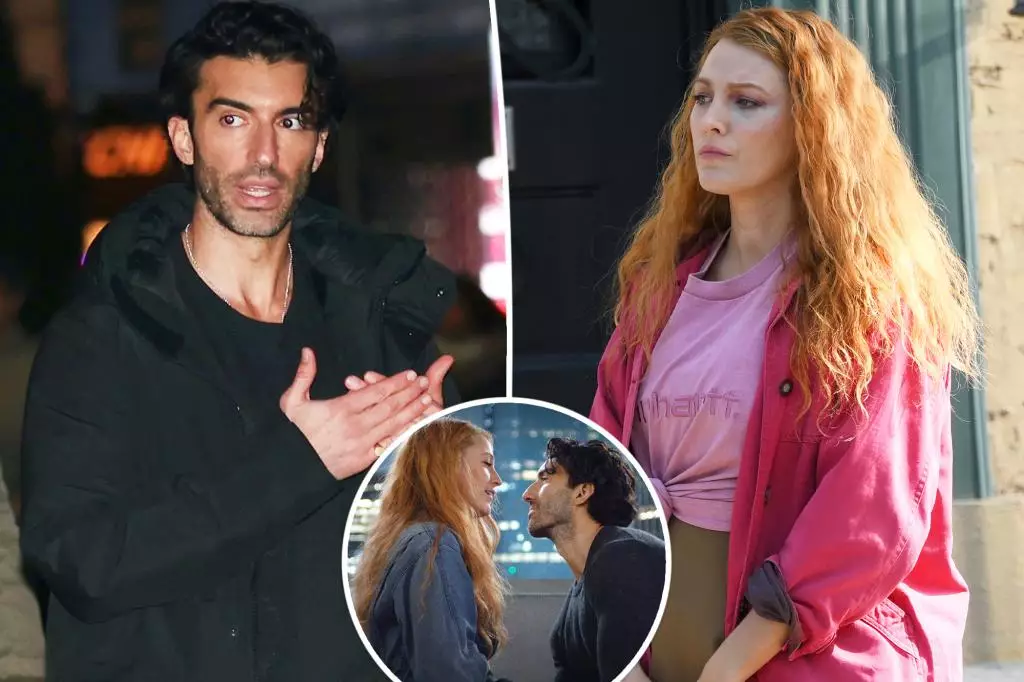The entertainment industry is no stranger to scandals and legal disputes, but the recent conflict between actor-director Justin Baldoni and actress Blake Lively appears poised to capture public interest in unprecedented ways. It began with Lively’s serious accusations against Baldoni of sexual harassment on the set of their film “It Ends With Us,” which were declared last week. Such claims can devastate careers, so the stakes are extraordinarily high for both parties involved. As the dust settles, reports indicate that Baldoni is preparing to counter these allegations with a legal strategy that promises to be as controversial as the initial claims.
According to sources, Baldoni’s legal team is diligently preparing a counter-complaint intended to challenge the narrative Lively presented. His lawyer, Bryan Freedman, made headlines over the weekend by asserting that the upcoming lawsuit would “shock everyone” by presenting evidence that purportedly dismantles Lively’s claims. This unusual step speaks volumes about the intensity of the situation—Baldoni’s team appears determined not just to defend against accusations, but to reclaim the narrative that has been painted around him.
Freedman’s criticisms extend beyond the scope of this case; he likens the situation to high-profile media disputes in the past, invoking names like Megyn Kelly and Gabrielle Union, suggesting an ongoing pattern of alleged media manipulation that haunts public figures. This underscores how quickly public perception can shift, particularly when fueled by sensational allegations.
Lively’s allegations have ignited a public debate on not only the incident itself but also the broader implications of how such allegations are navigated in Hollywood. As Baldoni’s team gears up to refute them, they will aim to pivot the conversation entirely. Interestingly, the counter-complaint is reportedly set to shift the blame towards Lively’s publicist, claiming that it was she who initiated a smear campaign against him. Such an accusation not only complicates the legal proceedings but also invites the media to scrutinize the roles that public relations strategies play in personal conflicts between stars.
Both parties have entered into a precarious form of conflict that highlights the complex relationship between public image and legal standing. Text messages said to have been acquired through subpoenas will reportedly serve as pivotal pieces of evidence in Baldoni’s forthcoming defense, further complicating Lively’s narrative. The anticipation surrounding how these texts will be interpreted adequately showcases the spectacle of public trials in the media.
The ramifications of this legal battle extend beyond Lively and Baldoni and could potentially reshape their respective careers. Lively seems to have garnered support from those involved in “It Ends With Us,” including writer Colleen Hoover and actress Jenny Slate. This backing demonstrates the solidarity often present in Hollywood, particularly when it challenges an individual’s character. Yet, the shadows of doubt loom large with Baldoni’s backstage drama following the allegations. Reports suggest that he has faced significant fallout, including losing representation from his talent agency, WME, and facing a lawsuit from a former publicist.
This backdrop embedded with professional repercussions underscores the seriousness of such allegations in an industry where reputation is paramount. It poses a crucial question: how much weight do public accusations carry in determining the future of a career? The entertainment community watches closely as both parties temper their public personas amid a swirl of criticism and support.
As the situation continues to develop, both Baldoni and Lively must navigate the precarious landscape of accountability that characterizes public life today. The legal system is set in motion, and the outcome could very well redefine how allegations of this nature are perceived and handled in the industry. Dubbed an “explosive” case, it reflects a moment of reckoning not just for the individuals involved but also mirrors greater societal conversations about harassment, power, and reputation.
In an age where allegations can quickly lead to cancel culture or renewed fame, the unfolding narrative remains vital for not just the actors but for anyone hoping to understand the interplay of power dynamics in Hollywood and the media’s role in shaping public perception. With the courtroom soon to reopen after the New Year, the world waits for the revelations that may transform this story into a defining moment in the evolving discourse on sexual harassment in the entertainment industry.

